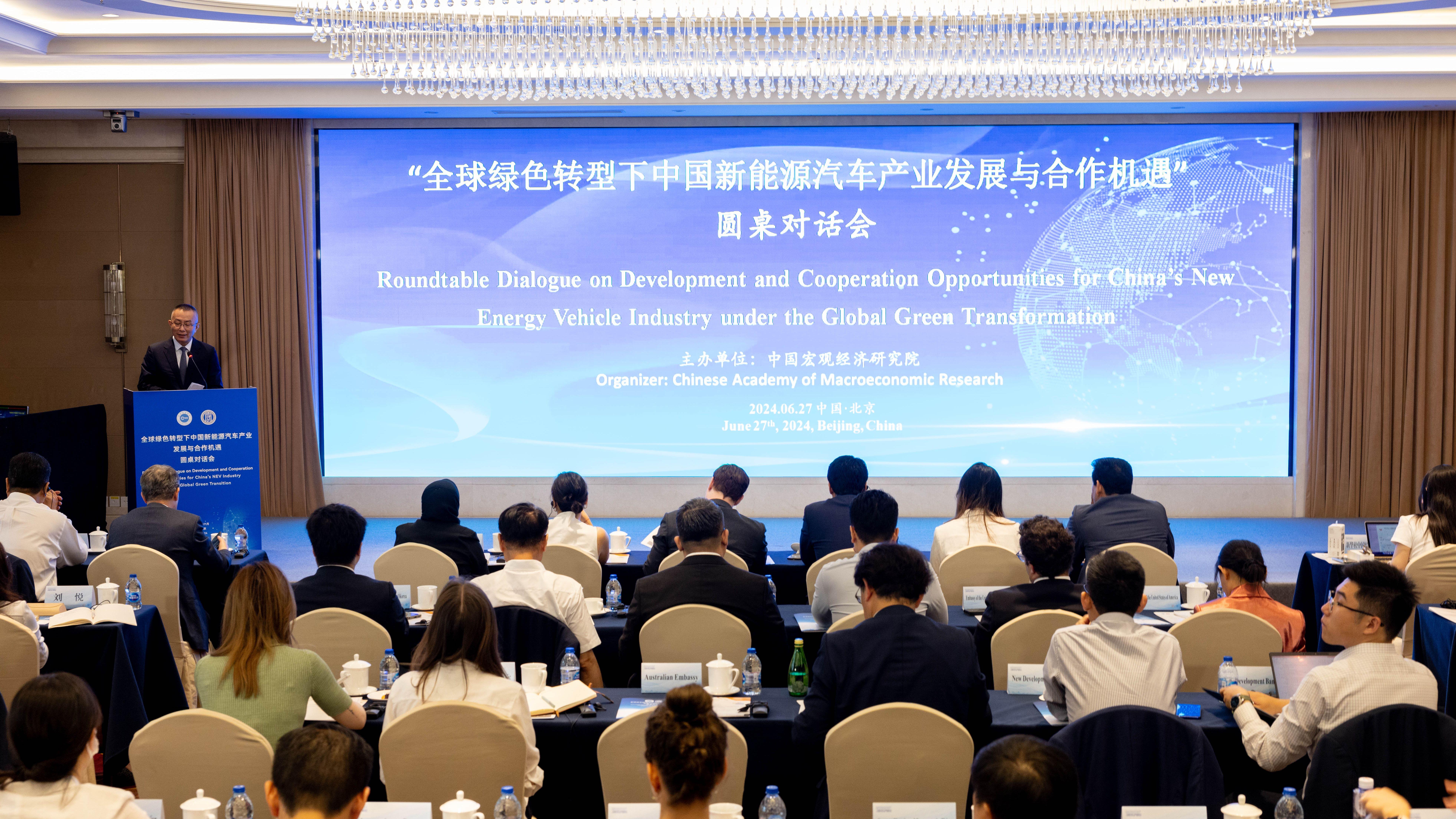BEIJING, July 3 (Xinhua) -- During a roundtable dialogue on development and cooperation opportunities for China's new energy vehicle (NEV) industry under global green transition which was held in Beijing recently, experts have dismissed concerns of overcapacity in the country's NEV sector, arguing that the capacity utilization rate of its NEVs stands at around 80 percent, far from being excessive.
Data from the China Association of Automobile Manufacturers showed that from 2020 to 2023, the penetration rate of NEVs in China increased from 5.4 percent to 31.6 percent. In 2023, China's NEV production and sales accounted for over 60 percent of the global total, ranking first in the world for nine consecutive years. Exports of NEVs also reached a record high, totalling 1.203 million units, with an increase of 77.2 percent year on year.
Huang Hanquan, head of the Chinese Academy of Macroeconomic Research, said that the development of China's NEV industry and its NEV exports have made significant contributions to global climate change mitigation and green transition.
Huang attributed the rapid development of China's NEV industry to market openness and fair competition, noting that Chinese NEVs are cost-effective and have comparative advantages. The price of NEVs exported from China is lower than that of similar models in Europe, but it is still higher than the sales price in China.
Wu Songquan, a senior expert with the China Automotive Technology and Research Center Co. Ltd., echoed Huang's view, pointing out that the NEVs exported by Chinese brands are sold in Germany and other European countries at about twice the price in China, but they still maintain strong competitiveness.
According to Jin Ruiting, a researcher at the Institute for International Economic Research of the Chinese Academy of Macroeconomic Research, added that China's NEV purchase subsidy policy expired in 2022, and the capacity utilization rate of NEVs stands at around 80 percent, with the rate of some major enterprises exceeding 100 percent. "Such a high capacity utilization rate invalidates the accusation of 'overcapacity' in China's NEV industry," Jin said.
Through continuous reduction of tariffs on automobiles, the average tax rate on vehicle imports in China is as low as 13.8 percent, of which the average tax rate on parts and components is only 6 percent. Foreign investment restrictions in the automobile sector have been fully lifted in China. Multinational companies such as Volkswagen and Mercedes-Benz have set up R&D centers in China, and more and more multinational companies are accelerating their electrification and intelligent transformation with the help of China's NEV industry.
Cui Fan, a professor at the University of International Business and Economics, emphasized that the internationalization of China's NEV industry requires not only a sustained, but also a locally embedded approach to development.
(Contributed by Li Tangning and Yu Rui, edited by Gao Jingyan and Tian Shenyoujia with Xinhua Silk Road, gaojingyan@xinhua.org)




 A single purchase
A single purchase









